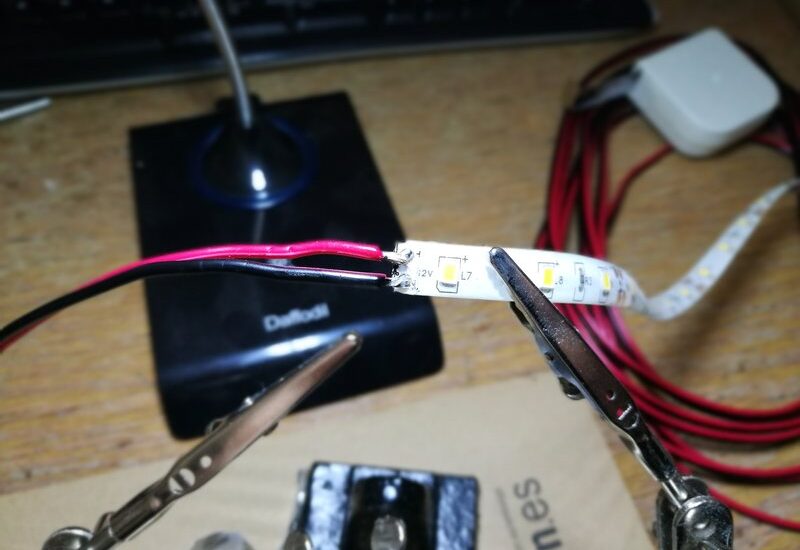This is a “Rerun” post from the original blog – I’ll be putting these up here and there alongside the new posts but with their original date of publishing.
About four years ago, I realised that not only was almost all my work time spent staring at a screen, but most of my leisure time too. And it started to bother me slightly, not only that I might go blind before I was 45, but that I wasn’t really creating anything substantial for all the time I was spending.
So I decided to start making things. I got some leather tools and a cheap hide for Christmas, dabbled in electronics, did a bit of woodwork, expanded my sewing, started filling out my tool collection and collecting and scavenging materials.
I organised my tools and materials into storage drawers so I could always grab what I needed. My desk was a big solid slab of wood with good surface area, and I made a rule for myself to try and keep it clear of the usual detritus of paperwork, gadgets and random gubbins so that it was an inviting space to work on.

I also started throwing every idea I had for something I wanted to make into a file, however ridiculous or overambitious, and it helped me get excited about working forward and learning new skills. I’m not good at sticking with just one practice or project until it’s done, but watching the great Adam Savage has reassured me that as long as you keep moving forward and finish things sooner or later, you can jump around from project to project according to your interest and as you figure your way past the various obstacles, and still be very productive.
Still I was only really spending the odd half hour or occasional evening working on my crafts, and nothing I worked on progressed as fast as I wanted. There were too many distractions, and when a surface is simultaneously your workshop, office, dining room and coffee table, it’s unsatisfying having to unpack everything and pack it away again every time you work – I got lazy and often just didn’t start something when I had some spare time, slipping back to watching videos or Youtube instead.
In March when I had secured a job in Sheffield and was looking for a flat, one of my non-negotiables was a spare room, one I could use as a bedroom for guests but most of all as a work space. And when I moved into my beautiful 2-bedroom Meersbrook flat, one of the happiest parts was getting everything set up in my sunny new workshop; moving in my drawers for tools and materials, drilling the desk for 10mm bolts to hold a good solid bench vice, plugging in my work light and sorting projects into boxes ready to get started.

Now, I’ve decided to move a step forward. Since I moved in I’ve dedicated decent, regular sessions to making things, but I want to put in some real substantial time and get really good. So just as a totally arbitrary goal to aim for, I’m adopting the “10,000 hours to become an expert” from Malcolm Gladwell’s book Outliers.
Based on the equally broad and arbitrary estimate that I’ve spent around 2,000 hours making things in my life so far, I’ve calculated that if I spend nine and a half hours a week in my workshop I will have done roughly 10,000 hours by the time I’m 55, which seems like a reasonable timespan. That’s an hour a day, and four and a half hours on the weekends. So I made myself a timesheet, and as soon as I started filling it in I realised that I could also use it to record every project I worked on.

By happy coincidence, it also struck me that 10,000 hours on these sheets would almost exactly fill one wall of my workshop. I don’t expect to still be living in this flat by that point, but it’s a nice image to work towards.
I’ve made one rule for myself, apart from the time target:
All work must contribute to a physical object.
This is to stop me wandering off into abstraction, overplanning and hackery – I want to get good at making real, satisfying objects that you can touch and feel (and smell and taste, I suppose). Design is fine, but it must be design that will make a real object. I am allowing myself some occasional time for organising the workshop, sorting parts and clearing up, because it’s at least practical work.
I’ve kept it up for over a month now and it seems to be a pretty practical schedule to follow; I often don’t do my full quota on the weekend depending on how much I’m out and about, but I tend to do a little extra most weekdays and it generally works out. And I’ve already finished a number of fun projects (some of which I’m actually going to have a bash at selling), and found my skills improving noticeably.

I’m just coming out of the craziest time of the year (enrolment and induction) at the university where I work, doing 9 and 10 hour days sometimes to keep up, and almost every day when I get home tired and strung out I’ve found myself happily making a cup of green tea, putting on some relaxing music and disappearing into the workshop for an hour or two, always feeling calm and regenerated.

I’ll be posting some projects, current and previous, on here shortly. I’ve documented most of what I made fairly thoroughly and taken a lot of photos; the projects are pretty varied (in scope, techniques used and degree of success) and hopefully they’ll interest and inspire you. I’ll also add some older craft projects I’ve always meant to post up.







2 thoughts on “My 10,000 Hours”